Reading and Phonics
Reading At St Joseph’s
At St Joseph’s, pupils have the opportunity to read a wide range of books and genres that not only aim to develop their love of reading and grow their imagination but also develop their vocabulary, emotional intelligence, subject knowledge and widen their understanding of other cultures around the world.
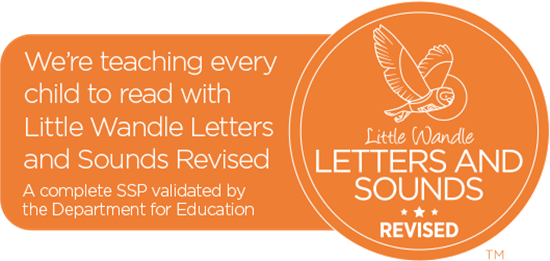
Keystage 1
Phonics
At St Joseph’s, we strive to teach children to become confident and enthusiastic readers by ensuring high quality teaching through our Phonics sessions. We believe that reading is a key life skill which is required for academic success. The teaching of Phonics is an integral part of the curriculum; across the school from Foundation Stage to Key Stage 1 and then to Key Stage 2. Our phonics is fully inclusive for every child as we provide a broad, balanced and differentiated approach. At St Joseph’s, we also value and encourage the pupils to read for enjoyment and therefore, promote a love of reading within a language-rich environment.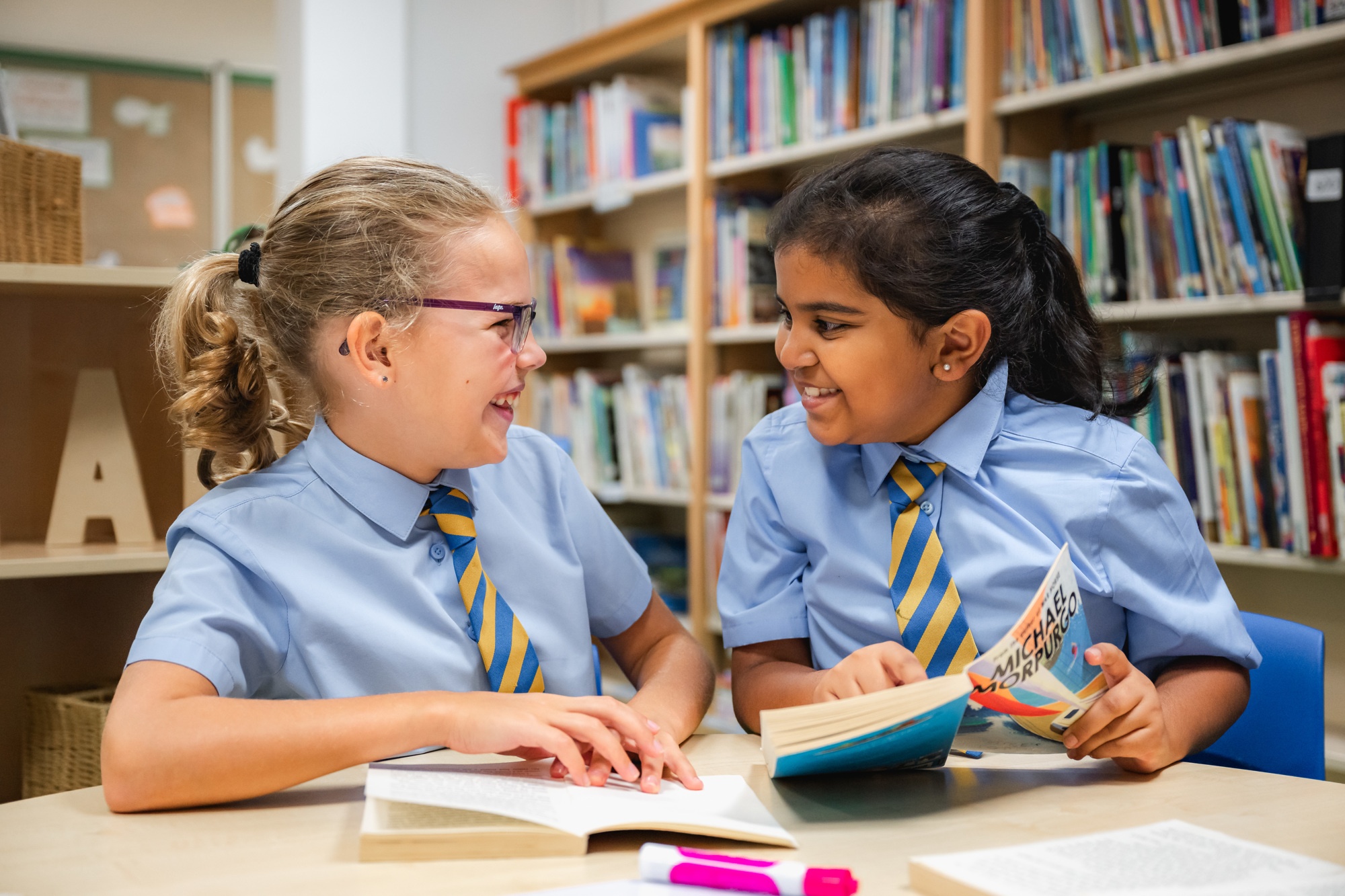
As a school, we follow 'Little Wandle for Letters and Sounds Revised'. This is a fully systematic, synthetic phonics programme which aims to enable our children to become capable and fluent readers by the time they reach the end of year 1. We continue to revisit phase five GPCs from 'Little Wandle for Letters and Sounds Revised' in Year 2, to support our children in fully embedding their understanding of phonics and applying it to their reading and writing.
Assessment
We assess the children regularly to check their progress and understanding and to ensure that any misconceptions are addressed quickly. Formal assessments take place in week 6 of every term for all children taking part in the programme; informal assessment takes place during every session, where the class teacher notes which children require further support and whether any GPCs need to be readdressed in their weekly review session.
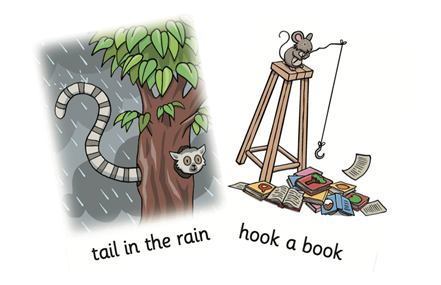


Reading Sessions - Keystage 1
In Reception, Year 1 and Year 2, the children read daily in small groups, lead by an adult. The adults are highly trained in following the 'Little Wandle for Letters and Sounds Revised' reading programme, which focusses on three main areas:
· Decoding - the ability to segment and/or blend a word in order to read it.
· Prosidy - the ability to read with expression.
· Comprehension - the ability to understand the text
The children's reading books are fully decodable and matched according to their phonic knowledge. The children should be able to read the vast majority (90-95%) of the words within the text.
Keep-Up Sessions
Children who are finding it difficult to maintain progress within phonic sessions form part of our 'keep-up' groups. These sessions take place with a trained adult on either a 1:1 basis or group basis, dependent on need. The children accessing this provision are re-assessed regularly (usually after three weeks) to ensure they are making progress and identify next steps.
Reading - Key Stage 2
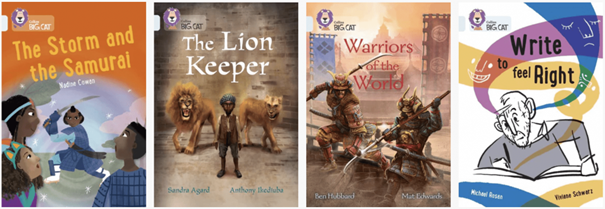
In Key Stage 2, children continue to follow the Little Wandle books until they are secure. This is to ensure a smooth transition from Key Stage 1 to Key Stage 2. Once children have completed this scheme, they then move on to turquoise, purple, gold and white books. Following this, children then move on to Pathfinders, Wayfarers, Explorers and Voyagers books. After this, they become 'Free Readers' and are able to select their reading books with increased independence. This is monitored by the class teacher to ensure that the books are still matched to the children's reading abilities.
In Key Stage 2, children are taught comprehension explicitly once a week in class. Comprehension lessons are based on carefully chosen texts and pupils are taught a range of comprehension strategies to develop their reading fluency and understanding of the texts that they read.
Children in Key Stage 2 who are not yet secure in phonics form part of our 'Rapid Catch-Up' groups. These are designed to be short, fast-paced lessons to enable those children for home phonics is still challenging to make rapid progress and narrow the gap between them and their peers.
Assessment
In Reception, year 1 and year 2, we assess the children regularly to check their progress and understanding and to ensure that any misconceptions are addressed quickly. Formal assessments take place in week 6 of every term for all children taking part in the programme; informal assessment takes place during every session, where the class teacher notes which children require further support and whether any GPCs need to be readdressed in their weekly review session.
Ongoing assessment for Rapid Catch-up in Years 2 to 6
· Children in Year 2 to 6 are assessed through:
- The Rapid Catch-up initial assessment to quickly identify any gaps in their phonic knowledge and plan appropriate teaching
- The Rapid Catch-up summative assessments to assess progress and inform teaching
- The Rapid Catch-up fluency assessments when children are reading the Phase 5 set 3, 4 and 5 books for age 7+.
The fluency assessments measure children’s accuracy and reading speed in short one-minute assessments. They also assess when children are ready to exit the Rapid Catch-up programme, which is when they read the final fluency assessment at 90+ words per minute.
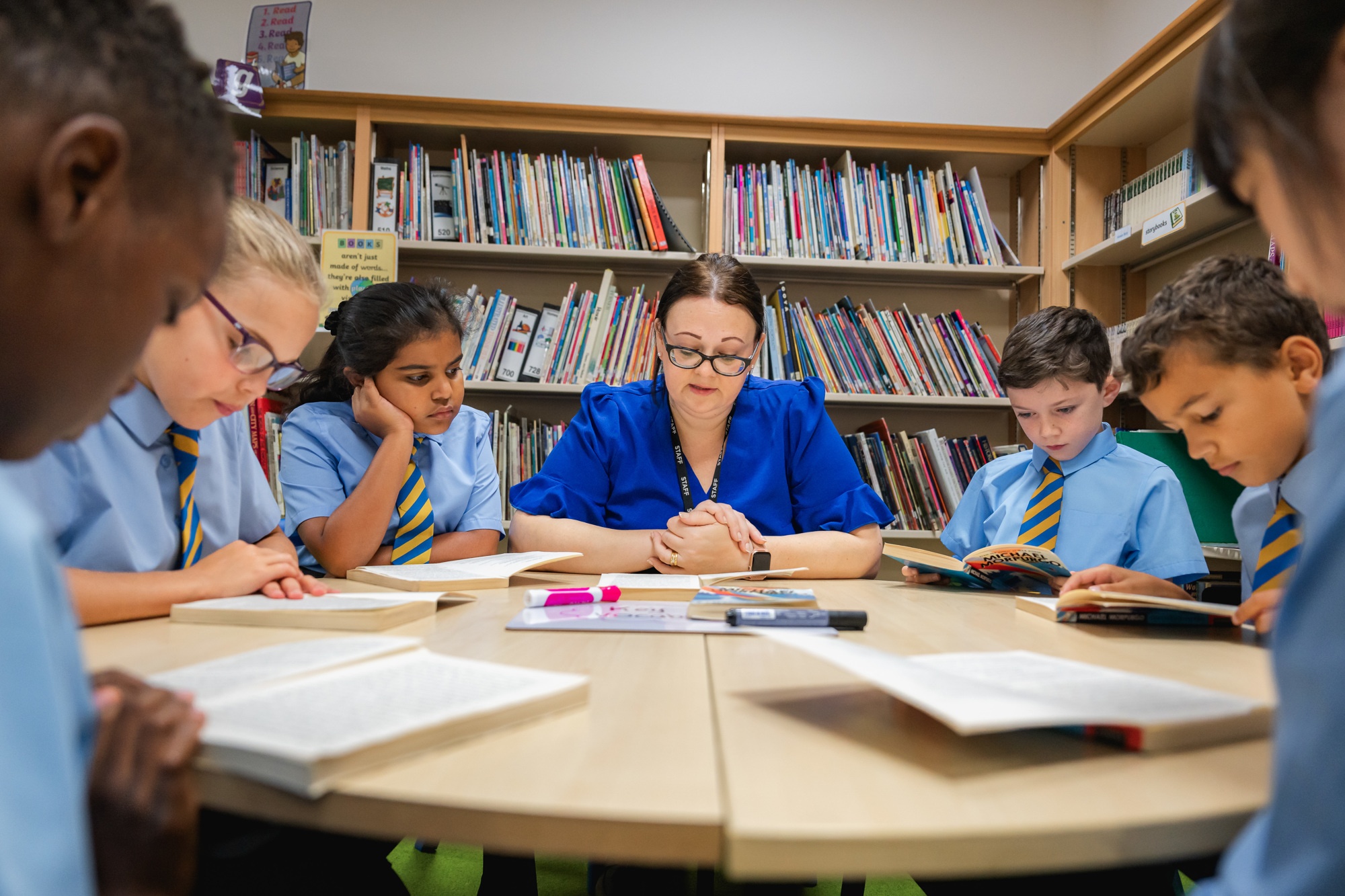
In years for those pupils who have completed Little Wandle in years 3,4,5,and 6, the children are similarly regularly assessed. Initially, this is in the form of assessment for learning and is conducted throughout the week via strategic questioning and focus groups led by the teacher. Teachers base their ongoing assessment on the VIPERS skills (see above). Teachers can then amend planning accordingly based on the weaker skills identified and on misconceptions developed. Termly formal assessments are also used in order to assess pupils’ ability to apply the fluency skills and VIPERS are taught throughout the term independently.
Reading At Home
Children bring their reading book home each day, and we expect all of our children to read daily with an adult. We ask that parents record their reading sessions with their children in their child's reading record, which should be brought into school daily. Class teachers monitor the reading records.
Further Information
For further information about reading at St Joseph’s, please have a look at the information below. Additionally, you may wish to visit the 'Little Wandle for Letters and Sounds Revised' website, which has a helpful section on the website dedicated to parents.
https://www.littlewandlelettersandsounds.org.uk/resources/for-parents/


































